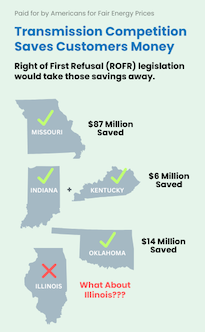* A cynic might say that this is the beginning of Bruce Rauner’s “Jim Thompson Moment”…
At a Statehouse news conference, Rauner said the state budget passed by lawmakers last spring is full of “booby traps” that make the budget worse than it appears on paper.
“The deficit is far worse than has been discussed,” Rauner said.
Rauner distributed a paper outlining $1.4 billion in additional budget pressures facing next year’s budget that he said are the result of “gimmicks” used to make the current state budget appear balanced. That is on top of revenue the state expects to lose from the partial expiration of the temporary income tax increase.
“It was a phony budget. It was not even close to balanced,” Rauner said.
However, Rauner again declined to offer specifics of how he plans to address the budget problems, including whether it will be necessary to keep some of the temporary income tax hike in place.
“We thought it was horrible, but it’s sooooooooo much worse than we ever could’ve possibly imagined!!!”
* More…
So, now he can blame Rod Blagojevich and Pat Quinn for whatever comes next.
115 Comments  
|
* For whatever reason, state treasurer-elect Michael Frerichs’ campaign staff is still trying to distance their guy from the notion that Chicago put Frerichs over the top. From a press release…
Official Returns Show Central Illinois Key to Victory for Frerichs
Nearly 30,000 Rauner-Frerichs independent voters stretching from Quincy to Danville, Peoria to Hillsboro
SPRINGFIELD, IL –The Illinois State Board of Elections certified results from the November election on Sunday, declaring Michael Frerichs the next State Treasurer by a margin of only 9,225 votes out of more than 3.5 million cast in the race. The slim margin of victory is the third-closest statewide race in Illinois over the last century, according to the Associated Press. An analysis of the official results by the Frerichs campaign confirms a strong showing by the downstate Democrat, particularly in Central Illinois.
The 38 counties belting Central Illinois from Danville to Quincy and from Peoria to Hillsboro generally vote nearly 2-to-1 for Republican candidates. Frerichs, a native of rural Champaign County, appealed to independent voters in the region by focusing on his financial experience and his downstate roots with a promise to invest in the Illinois economy. As a result, Frerichs received 29,168 more votes across the region than Governor Pat Quinn, shrinking Tom Cross’ margin of victory in all but three of the 38 counties. The Central Illinois native also received about 30,000 more votes in Central Illinois in 2014 than Alexi Giannoulias, Pat Quinn or Robin Kelly received in their Democratic statewide bids in 2010.
“Tens of thousands of Rauner-Frerichs independents in Central Illinois were critical to this race, and the decisive role of downstate sends a clear message,” says campaign spokesperson Dave Clarkin. “Independent voters want leaders who are focused on solutions, and they want results. Mike Frerichs pledged to make smart investments that offer a strong return to taxpayers while growing Illinois jobs, and voters responded to the list of reforms he has planned. Now, it is time to get to work.”
OK, please get to work and stop rubbing it in. You won. Move along.
For a list of central Illinois counties where Frerichs did better than expected, click here.
51 Comments  
|
FOIA bill stalls out after “firestorm”
Tuesday, Dec 2, 2014 - Posted by Rich Miller
* Remember the odd FOIA bill that was blasted by Attorney General Lisa Madigan and government reformers yesterday? Well, it wasn’t moved yesterday and may not be…
The sponsor of the plan, state Rep. Barbara Flynn Currie, a Chicago Democrat, said she filed the plan on behalf of Senate Democrats.
“If they want a discussion, I think we certainly have started one,” Currie said. “Possibly not just a discussion, a firestorm. But we will see where we go from here.”
Currie said she doesn’t know if the plan will move forward this week. Lawmakers aren’t scheduled to be in Springfield again after this week before a new class is to be sworn in next month. Days could be added, though.
* More…
Currie says the proposed changes weren’t actually her idea; rather — it’s a plan pushed by another prominent Democrat, Senate President John Cullerton.
“I think that the ideas came from people who thought that some of the agreements that resulted in the 2009 legislation no longer seem to apply, but I think others disagree,” Currie said of the measure’s origins.
The plan was supposed to be heard by a House committee yesterday, on Mon., Dec. 1. Instead, after a swift backlash, Currie declined to call it.
Still, she hinted of a looming fight over changes to FOIA.
“We’ll see where the conversation begins to take us. There certainly is a lot of opposition,” she said. […]
Cullerton’s office says it’s working with the House to fine-tune the measure this week.
5 Comments  
|
Question of the day - Golden Horseshoe Awards
Tuesday, Dec 2, 2014 - Posted by Rich Miller
* Our Golden Horseshoe Award for best Statehouse-area bartender goes to Mike at Brown’s…
Mike at Browns deserves a win this year. Often pulling bartender/waiter double duty, he’s always quick and accurate and never forgets what I drink. He’s always willing to engage in friendly conversation, but never forces it or intrudes. Similarly, he’s up for talking shop with us Statehouse people, but is just as happy to talk sports or local gossip and won’t bug you about work unless you bring it up.
Mike is hanging ‘em up this month and he will be sorely missed. He’s a big part of Browns’ atmosphere. It’s not everyone’s favorite, but if you’re looking for a drink or two after work in a quiet place, Browns is the place to be. It won’t be the same without him.
Agreed.
* Our Golden Horseshoe Award for best Statehouse-area waitress goes to someone who isn’t actually a waitress, but how could we pass up this nomination?…
I’d like to nominate a gal that’s not really a waitress, but does basically the same service. I hope you’ll accept this nomination, Rich. Her name is Kim and she works at the Stratton Building Cafeteria. Kim is a great cook when you want something special. She is always helpful even when she’s slammed with orders and the line is long. It’s a thankless job and most people don’t realize how good their food is until they’ve left the area. I would like to nominate her because she is a hard worker and deserves a big THANK YOU and this award! Great job, Kim!
Congrats!
* OK, on to today’s category, with last year’s winners in parentheses…
* Best political bar in Springfield (Boone’s Saloon)
* Best political restaurant in Springfield (Sebastian’s)
As always, intensity counts way more than mere votes. Make your case, please. Thanks!
19 Comments  
|
Motion or movement? We’ll know soon enough
Tuesday, Dec 2, 2014 - Posted by Rich Miller
* A long-stalled state-run health insurance exchange bill is starting to move in the House…
A House committee in a 9-6 vote Monday approved legislation creating a state-run website as the legislature begins its final week of the fall veto session.
Supporters of creating a state-run website say an impending end-of-year deadline to receive up to $300 million in federal funding plus a coming U.S. Supreme Court decision on tax credits spurred legislative action. Illinois residents currently purchase insurance on the national HealthCare.gov website.
* More…
During Monday’s meeting of the House Human Services Committee, [Rep. Robyn Gabel] turned aside concerns raised by Kristina Rasmussen, an opponent of the bill and spokeswoman for Illinois Policy Action, a wing of the right-leaning Illinois Policy Institute.
Rasmussen said several states running their own exchange have experienced massive technical problems. Gabel and Sarah Myerscough-Mueller, an aide to Quinn, pointed to other states in which enrollment went smoothly.
Rasmussen said creating a state-based exchange “locks us into larger costs down the road.”
Myerscough-Mueller said a state-operated exchange, which would begin enrolling people in fall 2015 for coverage that begins in January 2016, would cost $72.5 million to run during its first year, $57.5 million the second year and about $50 million each year thereafter.
The $270 million in start-up money from the federal government, which requires action by the legislature on a state-based exchange by the end of 2014, would help cover those operating costs and continue a marketing campaign and other outreach efforts, Gabel said.
* It’s paid for with a provider user fee on policies…
The measure that passed a house committee Monday allows for a 3.5 percent assessment on insurance plans to pay for the exchange.
During a house hearing Monday State Representative Norine Hammond asked Representative Robyn Gabel if the three-point-five percent of health insurance costs to pay for the program could rise with the federal rate. Gabel said the law would cap that, but there are ways around expected increased costs.
“So, and there may be some advocates that aren’t thrilled about this, but a big section of the money would go to marketing, so there would just be a little less marketing,” Gabel said.
Gabel says if the cap of 3.5 percent doesn’t generate enough money to run the state-based exchange lawmakers could come back with a new bill to raise more revenue.
20 Comments  
|
Off the rails?
Tuesday, Dec 2, 2014 - Posted by Rich Miller
* It certainly appears that local preemption on the minimum wage issue is now off the table…
Prior to returning to Springfield for the final scheduled days of the legislature’s fall session, [House Speaker Michael Madigan] dismissed talk that lawmakers — if they act to raise the state wage — would take away Chicago’s ability to do so.
“Without describing what we’re going to do, we would not interfere with what they’re going to do in the city,” Madigan told the Tribune after watching his former top House lawyer get sworn in as an appellate judge. Asked if that meant Chicago would be allowed to have a higher minimum wage rate than the rest of the state, Madigan replied, “Yep.”
Still, Madigan and other House Democrats acknowledged difficulties in coming up with votes needed to hike the state minimum wage rate.
“Well, we’re working on it,” Madigan said.
* Mark Brown has more on that last part…
Nearly 78 percent of those voting last month in state Rep. Mike Zalewski’s suburban legislative district cast ballots in favor of raising the state’s minimum wage to $10 an hour.
But as a minimum wage proposal is considered by the Illinois House this week, Zalewski (D-Riverside) is among many Democratic legislators whose support is far from certain.
Zalewski said he prefers a uniform minimum wage hike across the state, which will become less likely Tuesday if Chicago aldermen, as expected, endorse Mayor Rahm Emanuel’s plans for a $13-an-hour city minimum wage.
Despite two-thirds of Illinois voters endorsing a minimum wage increase, despite Democratic candidates making it a central focus of their 2014 election strategy and despite Democrats holding super-majorities in both legislative chambers, there remains a strong possibility lawmakers this year will leave untouched the state’s $8.25 an hour minimum wage.
For those hard-pressed to understand how that could be, some guidance can be found in the example of Zalewski, who insists he favors a minimum wage increase, too.
“We all want to see a higher minimum wage,” he said.
But Zalewski said he doesn’t see the wisdom of allowing the city of Chicago to have its own separate minimum wage that is higher than the rest of the state.
There’s a whole lot of finger-pointing going on here, but business groups which were willing to accept a $10 statewide minimum wage as long as it preempted Chicago’s ordinance met this morning and decided to work against any minimum wage bill that doesn’t include preemption.
The end result could be a Chicago minimum wage that’s $4.75 an hour higher than anywhere else in the state.
* It’s gonna be a heck of an economics experiment if the state bill fails. The naysayers claim that businesses will move across the street to the suburbs, or close or not expand, while low-paid suburban workers will flock across the border into the city, possibly creating worker shortages or pushing up suburban wages. We’ll find out pretty soon.
25 Comments  
|
* From Voices for Illinois Children…
If revenue plummets starting on Jan. 1, 2015, when current income tax rates expire, discretionary portions of Illinois’ general funds budget — over which lawmakers have the most control — would face aggregate cuts of at least 25 percent to balance the state’s budget in fiscal year 2016. And if the annual budgetary savings from the pension law passed last year disappear because the law is struck down by the courts, aggregate cuts to the discretionary parts of the general funds budget would need to be about 33 percent to balance the budget.
In arriving at these estimates, the Fiscal Policy Center methodically went through the state’s general funds budget, estimating resources available in FY 2015 and FY 2016 if the current income tax rates decline, then categorizing state spending as “mandated” or “discretionary,” depending on the degree of authority lawmakers have over the spending. Based on the projected deficits in FY 2016, all discretionary areas of the budget were then cut by an equal percentage until total general funds spending matched available resources.
We considered the following as “mandated” spending areas: those protected by federal law; Medicaid; state statutory contributions to the state-funded retirement systems; statutorily required transfers out of the general funds; debt service; and payments to the State Group Health Insurance Program, the Teachers’ Retirement Insurance Program, and the College Insurance Program. While the General Assembly could decide not to fund some of these areas (as happened for years when the state failed to make its annual pension contributions), doing so would be grossly irresponsible and would either increase the state’s unfunded liabilities or have other extremely harmful consequences such as default or the loss of significant federal matching funds.
We took great care to make conservative assumptions. We considered most spending that is required by state law to be “discretionary,” since the General Assembly could alter that spending requirement by changing or ignoring the underlying statute. We also made conservative assumptions about the timing of repayment of $650 million that the state is borrowing from other funds this year and that must be repaid within 18 months, by assuming the funds are borrowed in the second half of FY 2015 and thus could be repaid as late as FY 2017. We also did not set aside any money in FY 2016 for the state to pay down its nearly $4 billion in unpaid bills. Finally, we considered two special state funds — the Advancement for Education Fund and Commitment to Human Services Fund — as part of the general funds. While both funds are supposed to supplement, not supplant, general funds spending for education and human services, the General Assembly ignored this requirement in FY 2015.
Go read the whole thing.
66 Comments  
|
* Dave Dahl…
The Illinois General Assembly is trying to expedite a bill to make Election Day registration permanent as part of a passel of election-related ideas. Another bill would expand early voting for both mail-in and in-person balloting and do away with the term “absentee ballot” in favor of what State Rep. Barbara Flynn Currie (D-Chicago), carrying the bill for House Speaker Mike Madigan (D-Chicago), called “voting.”
The bill, which is still being put together despite it passing committee Monday evening, is moving too fast for some people’s liking.
State Rep. Ed Sullivan (R-Mundelein) quizzed Currie: “It was (Sunday) when the ballots were certified. And yet the day after that we have this omnibus election bill we’re going to push forth without any data analysis of what went right –“
“We know who won,” Currie interrupted. “What else do you need to know?”
* Mike Riopell…
State Rep. Barbara Flynn Currie, a Chicago Democrat, said Election Day registration is already common elsewhere and election authorities haven’t asked lawmakers to do away with it.
“A lot of other states have been there, done that,” Currie said.
The election proposal is lengthy. It even includes a provision that if election officials are providing mementos to some people such as “I Voted” stickers, no one can be denied such a sticker.
The proposal moves to the Illinois House floor for further debate. All Democrats on the panel voted for it and all Republicans voted against it.
39 Comments  
|
|
Comments Off  
|
|
Comments Off  
|
|
 Support CapitolFax.com
Support CapitolFax.com
Visit our advertisers...

 ...............
...............
 ...............
...............
 ...............
...............
 ...............
...............
 ...............
...............
 ...............
...............


|
   
|
Hosted by MCS
SUBSCRIBE to Capitol Fax
Advertise Here
Mobile Version
Contact Rich Miller
|















